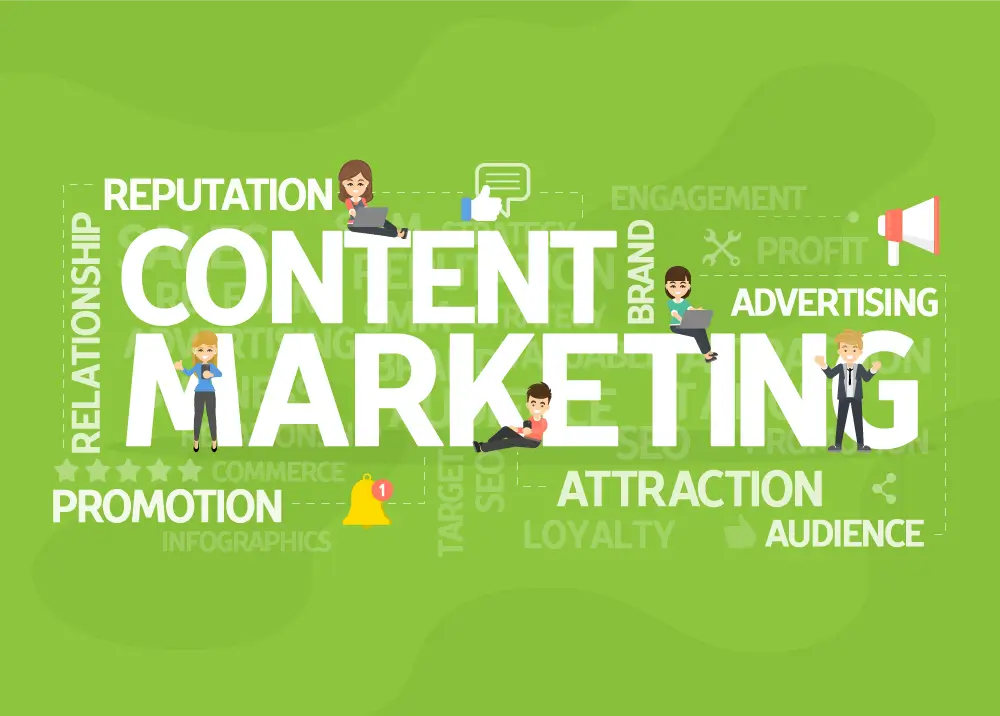
In a world where consumers are constantly bombarded with advertisements and information, standing out has never been more challenging—or more important. This is where content marketing comes into play. Unlike traditional marketing tactics that push products on consumers, content marketing pulls them in by offering valuable, relevant, and engaging content that speaks to their needs and interests. It’s not just a marketing trend; it’s a fundamental shift in how businesses connect with their audiences. From boosting brand awareness to driving conversions, content marketing is essential for any business looking to thrive in the digital age.
In this blog, we’ll dive into the importance of content marketing, explore its benefits, and guide you on how to leverage this powerful tool to take your business to the next level.
What is Content Marketing?
Content marketing is a strategic approach focused on creating and distributing valuable, relevant, and consistent content to attract and engage a defined audience. Unlike traditional advertising, which directly promotes a product or service, content marketing aims to provide value by addressing the audience’s needs, answering their questions, or solving their problems. This approach not only builds trust but also positions your brand as an industry leader.
In the digital landscape, SEO content writing plays a critical role in content marketing. By optimizing content with the right keywords, businesses can improve their search engine rankings, making it easier for potential customers to find them online. The goal is to create content that not only resonates with the audience but also aligns with their search intent.
The Benefits of Content Marketing
- Enhances Brand Awareness and Credibility: One of the most significant content marketing benefits is increased brand visibility. By consistently producing high-quality content that addresses your audience’s needs, you establish your brand as a trusted source of information. Over time, this builds credibility and positions your business as an industry authority.
- Improves SEO and Organic Search Rankings: SEO content writing is a crucial component of content marketing that directly impacts your search engine rankings. Well-optimized content with targeted keywords helps your website appear higher in search results, driving organic traffic to your site. This not only enhances your online presence but also attracts potential customers actively searching for solutions your business offers.
- Boosts Customer Engagement and Retention: Engaging content keeps your audience coming back for more. Customer engagement tactics such as blog posts, videos, infographics, and social media content help nurture relationships with your audience. By consistently providing valuable information, you increase customer loyalty and retention, which are key drivers of long-term business growth.
- Supports Brand Storytelling and Builds Emotional Connections: Every brand has a story, and content marketing is a powerful way to tell it. Through brand storytelling, you can connect with your audience on an emotional level, making your brand more relatable and memorable. Whether it’s sharing your company’s journey, highlighting customer success stories, or showcasing your values, storytelling helps differentiate your brand from competitors.
- Drives Conversions and Sales: Ultimately, the goal of content marketing is to drive profitable customer actions. By guiding your audience through the buyer’s journey—from awareness to consideration to decision—you can convert prospects into customers. Effective content, such as product guides, case studies, and testimonials, can significantly influence purchasing decisions, contributing to revenue growth.
Effective Digital Content Strategies
- Know Your Audience: The foundation of any successful content marketing strategy is a deep understanding of your audience. Create detailed buyer personas that capture your ideal customers’ demographics, preferences, pain points, and motivations. This will guide your content creation process and ensure that your messaging resonates with your target audience.
- Create High-Quality, Relevant Content: Quality trumps quantity in content marketing. Focus on creating content that provides genuine value to your audience. This could include educational blog posts, how-to videos, engaging social media updates, or informative newsletters. High-quality content not only attracts more visitors but also encourages them to stay longer and engage with your brand.
- Leverage Multiple Content Formats: Different audiences consume content in different ways, so it’s essential to diversify your content formats. Use a mix of written articles, videos, infographics, podcasts, and social media posts to reach a broader audience. This multi-channel approach ensures your message is seen and heard by more people, enhancing the overall impact of your content marketing efforts.
- Optimize for SEO: Effective SEO content writing involves more than just sprinkling keywords throughout your content. It’s about creating content that answers your audience’s questions and meets their needs. Use keyword research tools to identify relevant keywords and incorporate them naturally into your content. Additionally, optimize meta titles, descriptions, and headers to improve your content’s searchability.
- Distribute and Promote Your Content: Creating great content is only half the battle—you also need to ensure it reaches your audience. Utilize various distribution channels, including social media, email marketing, and guest blogging, to amplify your content’s reach. Collaborate with influencers and industry leaders to extend your content’s visibility and credibility.
Getting Started with Content Marketing
- Set Clear Goals: Define what you want to achieve with your content marketing efforts. Whether it’s increasing website traffic, generating leads, or boosting brand awareness, having clear objectives will guide your strategy.
- Develop a Content Calendar: Plan your content in advance by creating a content calendar. This helps ensure a consistent publishing schedule, keeps your team organized, and allows you to align content with key business events or promotions.
- Measure and Adjust: Track the performance of your content using analytics tools. Monitor metrics such as page views, engagement rates, and conversion rates to understand what’s working and what needs improvement. Use these insights to refine your digital content strategies.
Conclusion
Content marketing is not just a trend—it’s a powerful strategy that drives business growth by attracting, engaging, and retaining customers. By investing in high-quality content and leveraging effective digital content strategies, businesses can enhance their brand presence, improve SEO, and foster lasting relationships with their audience. If you haven’t already, now is the time to make content marketing an integral part of your business strategy. At Socnity, we specialize in helping businesses create impactful content strategies that drive results, ensuring your brand stands out in today’s competitive market.
FAQs
Q: What types of content are most effective in content marketing?
A: Effective content types include blog posts, videos, infographics, social media updates, and e-books. The best format depends on your audience’s preferences and your content goals.
Q: How long does it take to see results from content marketing?
A: Content marketing is a long-term strategy. While some results, like increased traffic, can be seen in a few months, building brand authority and driving significant conversions may take six months to a year or more.
Q: Is content marketing suitable for small businesses?
A: Absolutely. Content marketing can be highly effective for small businesses, helping them build brand awareness, engage customers, and compete with larger companies on a limited budget.


